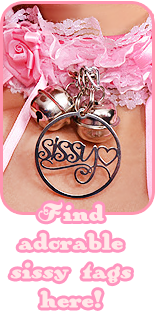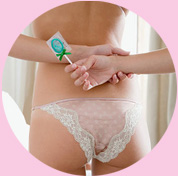By JOANNA STERN | Good Morning America “ Tue, Jul 9, 2013 10:26 PM EDT
( giggle Me -n- Jennies wrote about smart diapers long for this ... check out Denebian Princess is u no believe it. )
About a year and a half ago Jennie Rubinshteyn and Yaroslav Faybishenko's 1-year-old daughter was crying in the back seat of their car.
"I was being paranoid. I couldn't stop asking myself and my husband, 'What is in her diaper? What's in her diaper?" Rubinshteyn, 35, told ABC News. Faybishenko responded, "Data is her diaper. Urine is full of so much health information."
And that, the couple says, was the start of a new family business in making what they call "Smart Diapers." No, the diapers don't send tweets or alerts about when there's pee or poop inside -- that's still a job for Huggies' TweetPee app. Instead, the husband-wife team have invented a regular disposable diaper with a medical trick -- it collects information about a child's urine.
A dry-reagent panel, just like those colorful sticks you pee on at the doctor, sits on the front of the diaper. It works a lot like a QR code. Using the Smart Diapers iOS and Android app, a parent can scan the panel and see information about the urine.
More Smart Diapers: Huggies Tweets When It's Time for a Change
Rubinshteyn and Faybishenko explain that parents would do this once a day, and the information about their child's urine would be stored in the app. The goal is to accumulate data about urination patterns and then use that data to spot urinary tract infections, dehydration or developing kidney problems. The app will fire off an alert if something peculiar is found.
"This is about health monitoring, not understanding whether the diaper is wet," Rubinshteyn, who has an MBA from the University of Pennsylvania and experience working in finance, said. Her husband brings the computer science and health technology experience to the table. In addition, they have two biomedical engineers on staff at their company, called Pixie Scientific.
Not into Smart Diapers? How about Smart PJs
The Smart Diapers are still in testing, though. The couple is working with the U.S. Food and Drug Administration on approval and testing them at pediatric hospitals. The goal is to bring them to hospitals and then to the broader market. The pricing isn't set yet, but according to Faybishenko, the diapers will be 30 to 40 percent more expensive than regular diapers. They plan to sell the Smart Diapers in a package with regular diapers, since they only need to be worn once a day.
But Ari Brown, a pediatrician and author of "Expecting 411" and "Baby 411," expressed some worry about the pricing and bringing this concept to parents.
"I am not sure you need this for the average kid," Brown told ABC News. "I'm not confident this a useful screen for a bladder infection because its not a clean specimen. Also, for these highly anxious parents, I am not sure it will be reassuring. It might be alarming, in fact."
Brown also added that she had never seen a child diagnosed with diabetes who's still in diapers.
Faybishenko, however, said the whole point of the digital diapers isn't to alarm but to only speak up when there is a reason to worry.
"What we want to build is protection that's unobtrusive and integrates with a parent's work flow," he said. "It speaks up when there is a reason to be concerned. It is something that stays silent most of the time, but speaks up when you need to take your child to a doctor."
Still, the entrepreneurial couple realizes they have embarked into an area that's new. The diapers will be tested starting this summer at hospitals, including New York Presbyterian Hospital in New York City. "We are in new territory here," Rubinshteyn said.






 on a non-object in <b>/home/sissykis/public_html/sk/includes/login_sessions.php</b> on line <b>190</b><br />
)
























































